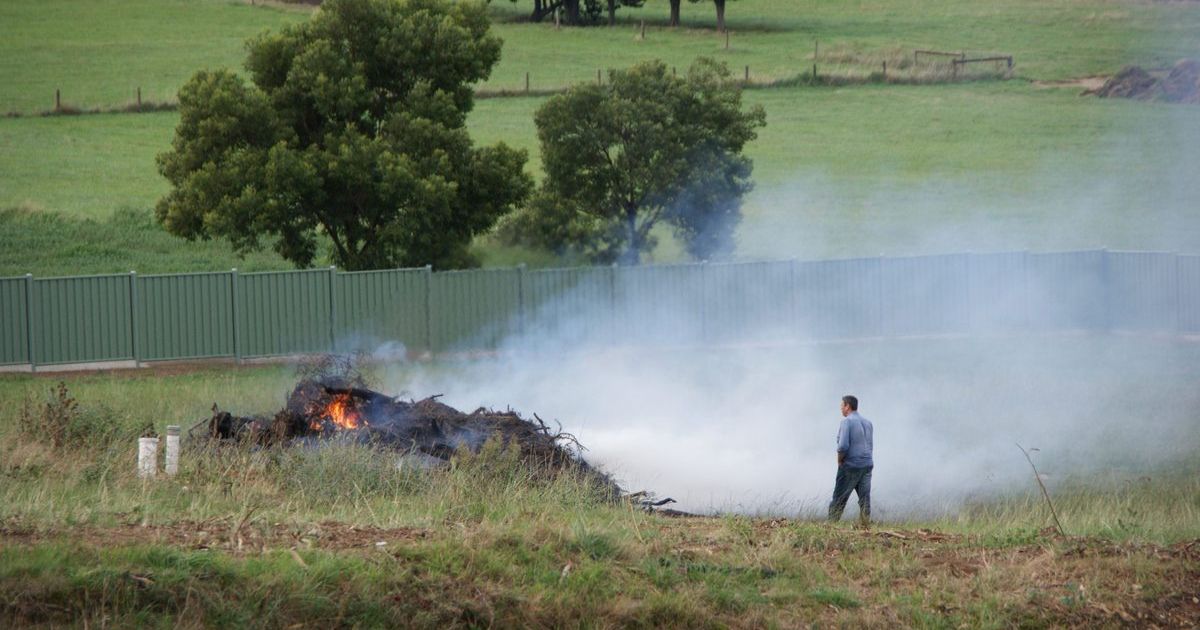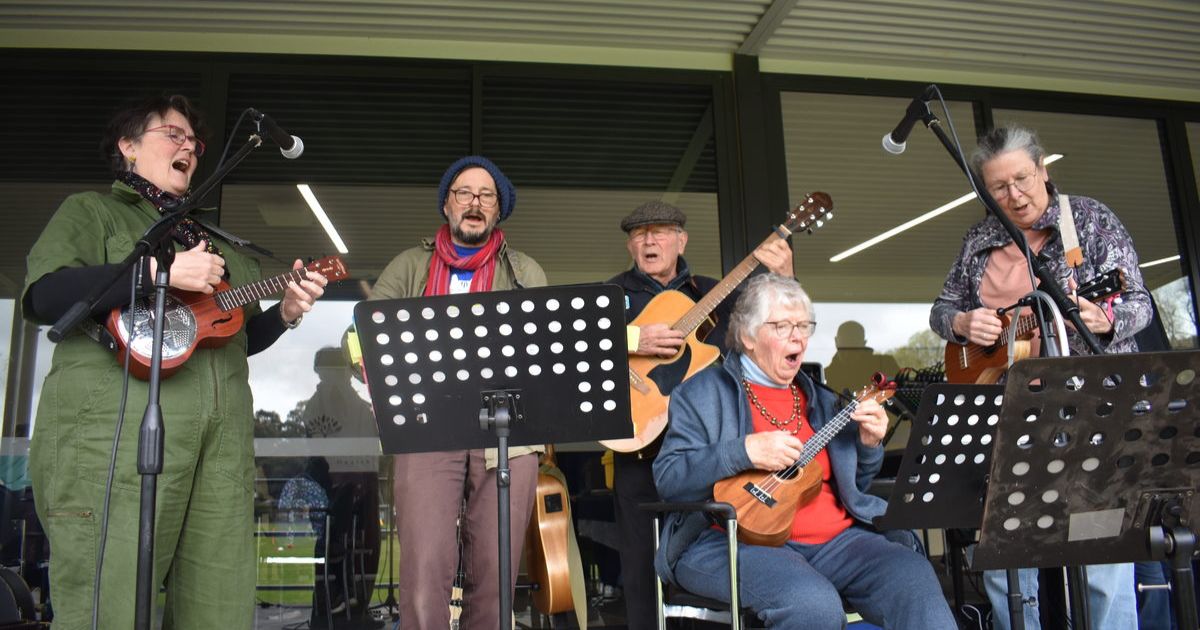Human nature, 1860s style

Streetscape: Heathcote in the 1860s and 70s with the old courthouse and council office building, constructed in 1863 and still standing. The original hospital building is at the far left and the old post office on the corner of High and Herriot streets is to the right. The banks of the McIvor Creek in the mid foreground are bare. Photo: STATE LIBRARY OF NSW
THE McIvor goldfields were home to an estimated thirty-five to forty thousand people during the first gold rush of the early 1850s, but those numbers fell rapidly within a relatively short period of time.
By the 1860s Heathcote was home to several churches, a hospital and a school and it had become an established town rather than a tent city.
Farming became the mainstay of the district and it became home to a settled, less transient population.
The pages of its newest paper, the McIvor Times, revealed the workings of small-town life.
The language may be less flowery 160 years later, but the behaviour it recorded is timeless.
Unwanted Attention
Isabel’s letter to the editor could have been written today.
Her irritation at unwanted attention from men leering at passing women in the street has a very modern feel.
For the benefit of today’s readers; a nobbler was measure of spirits.
Published Friday 14 August 1863
(To the Editor of the Mclvor Times)
SIR,–This “weeny” township of yours seems to be exceedingly prolific of foppery; if a strange lady present herself in your Street, she is stared out of countenance as she passes along by certain would-be gentlemen, whose chief employment appears to be nobbler drinking, cigar smoking, and the cultivation of enormous appendages to the chin, giving them a striking resemblance to the horned quadrupeds, which are similarly endowed by dame Nature.
In the meantime, I commend to their notice a little salutary and honorable labour, which might improve their physical, mental, and above all, their moral development.
I ask, Sir, the protection of your pen for my sex from this nuisance, and shall take the liberty of claiming hereafter, a place in your columns for the publication of the names of those who may persevere in their ungentlemanly conduct.
Yours, obliged,
ISABEL.
Heathcote, 4th August, 1863.
Nineteenth century scammer
In 1867 the McIvor Times had a laugh at the expense of some of Heathcote’s more prominent citizen’s including Thomas Craven.
Mr Craven was a member of the borough council and the hospital committee, and on his death was described as shrewd businessman.
His highly successful grocery store was located on the corner of Chauncey and High streets in the building that now houses Heathcote Winery.
But his apparent commercial expertise was no match for the calculating trickery of Elizabeth Healy in 1867.
Published Friday, 19 April 1867

COMMENCING BUSINESS – It is not difficult to imagine a man with nothing more than a needle, thread and thimble starting a tailoring establishment without capital, or a man with his own razor, his wife’s scissors and toilet comb opening a tonsorium.
In fact it is often that our admiration is moved by the gallant struggles of aspirants to independence to the extent of going into business on one’s own hook; but we never saw so remarkable a case of a person rapidly rising into what looked like business, and we never saw a collapse so quiet, speedy, and ignominious as that furnished by the opening and shutting of the last beer shop at Heathcote.
An apparently modest, genteel, middle-aged female made her appearance here, it is said from Kyneton.
Her mild and gentle appearance, her pale face, becomingly shaded by a veil, made tradesmen willing at least to listen to her; she soon made known her intentions to Mr Craven, to whom she disclosed the object of her ambition; she aimed at the distinction of becoming the mistress of a beer shop, at which she was sure she could soon realise sufficient profits to reimburse any kind friend who might assist her.
Mr Craven saw at once that she would make a very desirable tenant, and the lady in black applied to the Bench for a certificate authorising the issue of a Beer license to Mrs Healy, in a house known as Hank’s drapery store.
During the interim between the time of application and the issuing of the license, it was necessary to prepare for that event so that the opening of the shop might take place as soon as the law’s delay would permit.
An appeal was made to Mr Bolton, the brewer, for a stock to start the promising concern with.
He looked at the applicant, and saw in her a victim of misfortune, who was born and trained in too delicate a way to enable her to successfully battle the watch of life in this wicked world without some assistance, and, like a jolly good fellow, he promised to let her have a cask of beer; and after another attack he yielded to the necessity of doing something towards the license fee.
At length the grand opening day arrived, Mr Lee was ready to issue the license, the poor woman had not quite enough money, and was it likely that Mr Lee would be less kind than others? Certainly not!
He is a judge of character, modesty, mildness, and an inclination to sadness generally get the better of a good many people, and Mr Lee, like a brick, put his hand in his pocket and made up the deficiency.
The license was issued, and the house was opened, at least the door was, it was not deemed desirable to take down the shutters, as it might reveal to the vulgar gaze of prying curiosity the extent to which the place was furnished.
The mild Mrs Healy took up her position beside the cask, and waited for customers; now and then she lifted her veil in order that she might more conveniently empty a pint pot in safety; still no business began to manifest itself, and still the home consumption went as rapidly as ever.
The dear woman at length began to look drowsy, she had acquired the knack of turning the tap on, a purely mechanical movement; but she had patronised herself so much that she became obfuscated, and forgot to turn the tap off after drawing the last pint.
She sank into a sweet slumber of peace, to dream perhaps of the smile of fortune which made her landlady of the last but by no means least beer shop in Heathcote.
The peaceful slumber continued, and the tap continued to run till the poor woman had had sufficient sleep, and the beer had all run out on the footpath; the door was shut, and another sad example of the instability of human aspirations was offered to the reflecting portion of our population; all the woman’s hopes were crushed, or rather drowned in one short booze; we do not know whether Mr Bolton got the empty cask back, but we believe Mr Craven found the key in the gutter.
The lady in black vanished like a phantom! No one knows where she is gone, and numerous enquiries are made by those who were kind enough to help her to commence business.

Serial nuisance
THOMAS Blake’s claim to be a first-time offender when his pigs ran riot in 1868 clearly held little weight with the magistrate who was inclined to believe the local constable.
The litany of excuses offered included his wife having just given birth and a young servant who let the pigs out.
Published Friday, 6 November 1868
Heathcote Police Court
Tuesday, 3rd November, 1868.
(Before Mr. Shadforth, P.M., and the Mayor)
Thomas Blake was charged with permitting five pigs his property, to wander on the public street.
Constable Mansfield stated that he found the pigs in Herriot Street, and took them to the pound as he could not find the owner; they were claimed the day after he impounded them by the defendant; the pigs gave him a deal of trouble; he had to run often all over the flat up by Fairbank, over the racecourse.
John Hamilton, poundkeeper, was called to prove that the pigs were impounded and released by defendant who said: I plead guilty, your Worship, to having the pigs impounded, but my “misses” was confined, the boy let the pigs out, and I wasn’t at home; I hope your Worship will look over it this time as it is the first time they were out and I have sent them away; I paid 15s. to the poundkeeper.
Constable Mansfield stated that the pigs had been running at large for some time past.
Defendant was fined 25s. and 5s. costs.

















